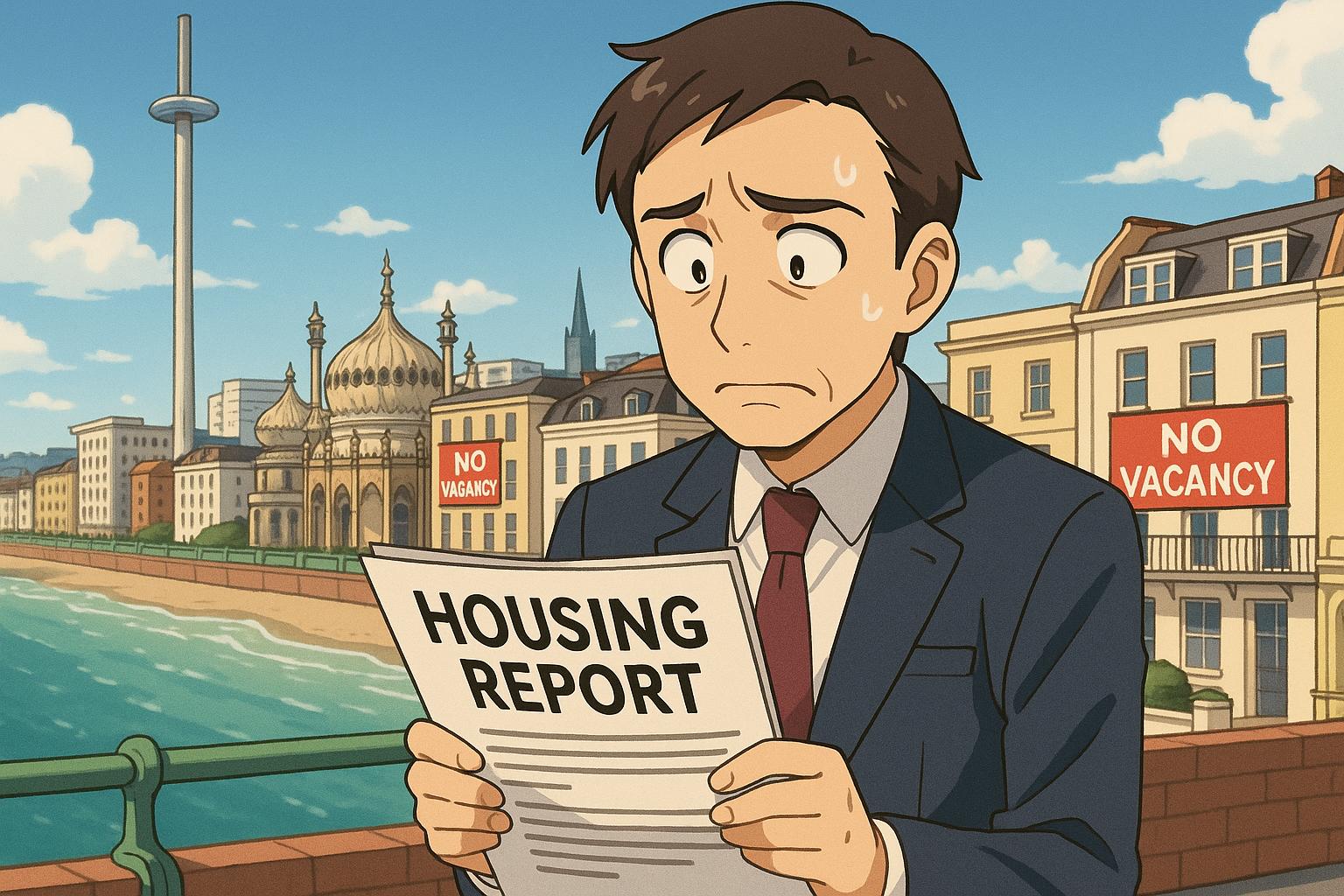Brighton and Hove City Council is poised to implement stricter regulations on holiday lets in response to escalating concerns surrounding the local housing crisis. A report from the council's Place Overview and Scrutiny Committee highlighted that between 2,000 and 6,000 homes in the area are currently utilised as holiday rentals. This growing trend is believed to be exacerbating the existing housing shortage, contributing to issues such as antisocial behaviour and overloaded council services, particularly regarding waste collection.
Councillors have noted that many of these holiday lets evade business rates, taking advantage of potential tax loopholes. In light of this, the council has suggested the introduction of a licensing scheme that would ensure these properties comply with health and safety standards and are properly registered as businesses. Such measures would also entail financial penalties for non-compliance. If endorsed by the council's cabinet, which is set to convene on 26 June, these regulations could fundamentally alter the landscape of short-term rentals, particularly platforms like Airbnb.
Green councillor Ollie Sykes underscored the gravity of the situation, stating that "there is nowhere to rent in Brighton and Hove anymore. It's all Airbnb which is absolutely crazy." He emphasised the pressing need for careful planning to manage the impact of short-term lets on local housing availability. Data indicates that as few as 2,100 homes are currently listed as available to rent on Rightmove, highlighting the urgent need for accessible housing in the area.
Taking a slightly different stance, Catherine Lane, owner of My Holiday Let, acknowledged the economic contributions that short-term rentals bring to Brighton, suggesting that they provide greater financial benefits compared to traditional hotels. Nonetheless, she agreed that oversight via licensing or registration is a prudent step towards balance in the market.
The ongoing conversation has included proposals such as the motion from Green councillor Ellen McLeay, who raised alarms at a recent council meeting about families being "priced out" of the city centre, with short-term rentals contributing to the emergence of "ghost neighbourhoods." McLeay's concerns reflect broader national issues regarding housing availability, with sentiments echoed by other councillors who invited calls for new legislative powers that could allow local councils to set limits on the number of short-term lets and impose taxes on tourists.
While Brighton and Hove’s predicament is not unique, it represents the complexities faced by urban areas grappling with an influx of holiday lets. A report from August 2023 revealed a staggering increase in unoccupied homes in the city—rising to 7.2% from 4.2% in 2011. The same report indicated that approximately 2,218 homes are currently designated as short-term lets, accounting for about 1.7% of all residences in Brighton and Hove. This increase in short-term rentals directly correlates with rising rents and housing unaffordability, pressing local governments to re-evaluate their strategies to provide for residents.
In a bid to address these intense housing challenges, the council has taken preliminary steps by approving a plan to double council tax for second or empty homes starting in April 2025. This decision aims to generate much-needed revenue to tackle housing supply problems while drawing attention to the necessity of reintegrating vacant homes into the market for long-term residents.
As these discussions progress, the approach taken by the council in Brighton and Hove could serve as a precedent for other cities facing similar dilemmas, potentially reshaping the regulation of short-term holiday lets throughout the UK.
##Reference Map:
- Paragraph 1 – [1], [5]
- Paragraph 2 – [1], [6]
- Paragraph 3 – [2], [3]
- Paragraph 4 – [4], [3]
- Paragraph 5 – [6], [3]
Source: Noah Wire Services
